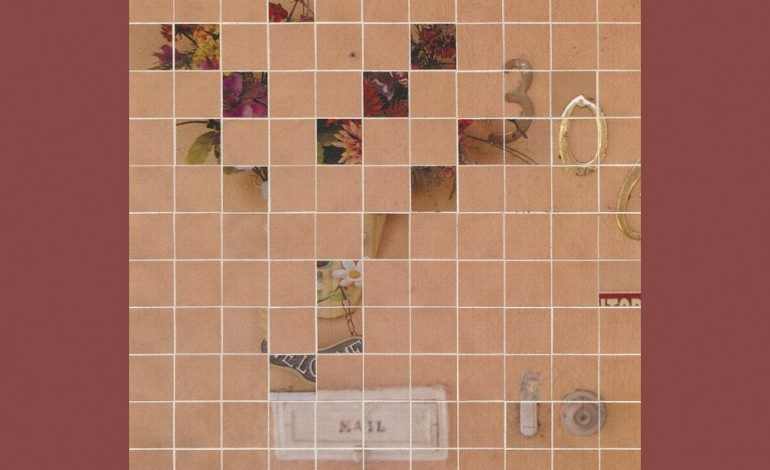

Loss Laid Bare
If Touché Amoré’s sound on their debut LP, … To The Beat of a Dead Horse, is an origami crane, then the sonic palate of new album Stage Four is a square piece of paper. The diverse range of influences that has always informed their sound—which is inspired in equal parts by hardcore, emo, pop punk, and related sub-subgenres—is deconstructed into its base elements at various points on the album. Frontman Jeremy Bolm alone sings in three new, clean vocal styles, contributing a melodic, confessional tone to album opener “Flowers and You” and “Benediction;” a deep, throaty refrain to lead single “Palm Dreams;” and subdued, Ian Curtis-esque vocals to “Rapture” and album closers “Water Damage” and “Skyscraper.”
This is the type of growth that keeps bands like Touché, who has been active in the hardcore and punk scenes for more than 8 years, sounding young and vital. Their uniquely sensitive approach to hardcore has meant that for much of their career, they’ve appealed to just as many fans of bands like La Dispute or Alkaline Trio as they have traditional hardcore kids, earning them spots on more conventional indie rock-predominant shows and festivals that would normally not be open to bands whose first home was in the hardcore scene. Songs like “Benediction,” which for long stretches sounds like a major key emo-leaning pop punk song, or “Softer Spoken,” which opens with a math rock riff, allow space for them to speak directly to the side of their fan base that doesn’t circle pit. A good majority of the album retains the frenetic pace and emotionally-charged vocals that have always defined them, striking an ideal balance between risk-taking and playing to their existing strengths.
Their genre experiments do a lot to serve the album’s concept too: in late 2014, Bolm’s mother passed away from cancer, and the album was written in her memory. Because of the emotional weight of its subject matter, lighter sections both allow room for Bolm’s deeply personal lyrics to resonate, and act as counterbalance to the profound melancholy that inevitably underlies an album about a personal tragedy.
The lyrics of the first three songs are nonspecific, and though taken from Bolm’s experience, contain vaguer sentiments that speak to the universal nature of loss. It’s in fourth track “Displacement” that Bolm begins to truly bare his soul. “You died at 69 / with a body full of cancer / I asked your God ‘how could you?’ / but never heard an answer,” it begins. Bolm grapples with his thoughts on God and spirituality, both forsaking a deity who would allow for the loss of his mother’s life, and believing that she can somehow continue to look after him: “I know she’s looking out for me / the way she said she would.” Traditionally, religion has been nothing more than a source of ridicule in punk rock and punk-derivative music, but Bolm’s lyrics have the power to make even any mohawk-rocking leather-jacketed nonbeliever sympathize deeply, at the very least.
In penultimate track “Water Damage,” Bolm recalls “that night when you took the wrong dose and weren’t making any sense / is a night that I often remember / and one I wish I could forget.” On the surface this line is a recollection of a night that was probably close to the end of this mother’s life, but which at its core speaks to how we remember our lost loved ones. He can’t help but feel like he’s failed to protect her, which is a desperate feeling he can merely hope to forget. The specifics of his experience in this and other personal lyrics end up speaking more truthfully about somber and inevitable realities that follow losing a loved one to a disease than any sort of blanket sentiments, both by being startlingly honest and invoking equivalent memories in anyone who’s gone through something similar.
The final song, “Skyscraper,” features vocal accompaniment by Julien Baker, whose critically-acclaimed minimalist folk album Sprained Ankle was released on hardcore label 6131 Records. She’s also a boundary breaker, and the perfect addition to the album’s emotional apex, which sounds simply sublime. Shoegaze-y guitars accompany a duel shouted/sung refrain of the words “you live there / under the lights.” This section sounds like nothing else on the album, and lyrically refers specifically to a trip Bolm took to New York with his mother, and figuratively could be about everything from hospital lights to the afterlife, invoking the album’s entire emotional journey in six words.
Somehow Touché Amoré has managed to cast a net that’s unusually wide for a band grounded in subgenres that are notoriously alienating to outsiders, while staying as true to themselves as they’ve ever been. Earlier this year, we were gifted with Blackstar, which was improbably written by David Bowie about the end of his own life. Now there’s Stage Four, which approaches the same sensitive subject matter from the survivor’s point of view while keeping it real enough to ring true to kids who like to shout along at shows. It’s profound and ambitious to an extent that’s successfully pulled off by perhaps only one hardcore band per generation. Though they very likely reached this point some time around their signing to Jay-Z’s management group, Roc Nation, Stage Four solidly cements Touché’s status as future hardcore punk legends.
